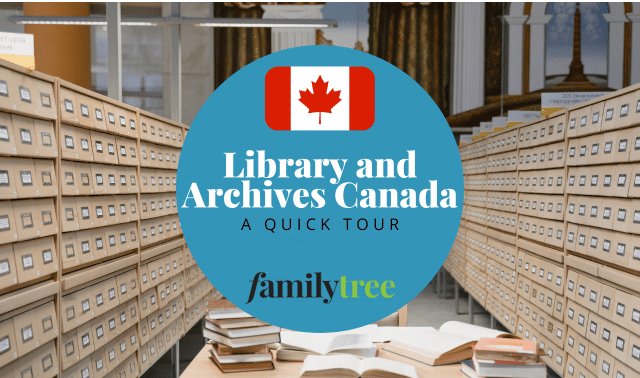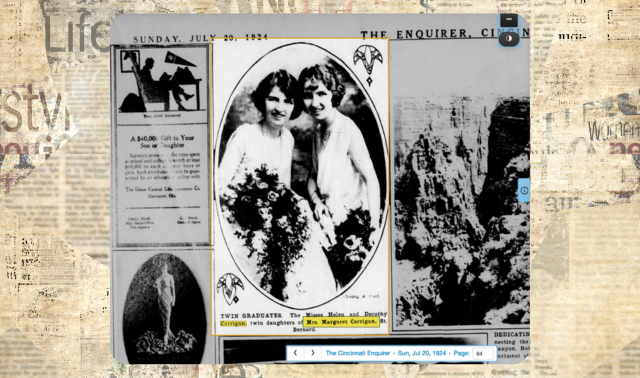Few mysteries are as intriguing as those involving our pasts. Perhaps that’s why genealogy is such a fascinating pursuit—we’re trying to solve our families’ puzzles.
Old records and photos can help you piece together your puzzles by providing a wealth of information about your ancestors. Starting your roots research can seem like a daunting task, but as I explain in my book
Family History Detective: A Step-by-Step Guide to Investigating your Family History (
Family Tree Books), anyone can be a fantastic family historian. All you really need are some key characteristics, all of which can be learned. Here’s how to develop a dozen top traits of successful genealogists.
1. Inquisitiveness
Sherlock Holmes would’ve made a good genealogist. A keen, inquiring mind and a sense of adventure are essential to putting together pieces of your family history. You probably already have a healthy curiosity about your clan’s past, but you can nurture that inquisitive nature by always asking “Why?” as you learn family details from interviews, records and reading. Don’t stop with a single record: Think about where that new information will lead your research.
2. Critical thinking
Just as you’d want to know who’s behind the latest miracle diet, learn to question the validity of the genealogical sources you uncover. Is the death certificate correct? Does it match other information you’ve found about that relative? Think about who provided the information that appears on a document. Is that person likely to have been biased or incorrect? The informant on a death certificate, for example, may have been a spouse, child or friend of the deceased—who may have been guessing at the deceased’s birthplace or parents’ names.
3. Organization
You might be a great detective and locate all kinds of information, but if you don’t organize your discoveries, you might as well not have made them. Set up a file system for your paper and digitized documents (a folder for each nuclear family, filed by surname, works well), and keep your family tree software or paper charts updated with new finds. Use a research log to track sites you’ve searched, libraries visited and records requested. It should be easy for you or someone else to pick up your research, even after time away from it.
4. A love of reading
Avid readers make better family historians. Of course, to learn more about successful research methods, you need to read books and articles about how to find your ancestors. But all the reading you’ve done—everything from history books to mystery novels—will increase your understanding of information you uncover in your search.
5. Listening skills
Developing the art of listening can do wonders for your genealogy. Some people ask a question, but instead of listening to the answer, they concentrate on formulating their next question. Make an effort to pay attention to reference librarians, more experienced genealogists and your older relatives. Listen for nuances of meaning. Digest the answers to your questions.
6. Consistency
Consistency is a good thing for genealogists. Take dates, for example. How many ways can you write your birthdate? July 25, 1950; 07/25/50; 25 July 1950; the twenty-fifth of July, nineteen hundred and fifty; 7.25.50; 19500725; 25/7/50. These are just a few possibilities. But sticking to a format for birth, death and other dates (genealogists usually use 25 July 1950) makes your research easier to understand.
Also be consistent with number formats (nineteenth or 19th) and names (Hamilton County or Hamilton Co.), as well as your notes. If you always write down the citation for a source before you examine it, you’ll be much less likely to leave the library with a sheet of notes from some unknown book. If you consistently copy names just as you find them in a record, even when they’re abbreviated, you won’t wonder later whether the name was actually Joseph in the record and you hurriedly jotted down Jos.
7. Skepticism
Skepticism is one of those traits that defines your level as a researcher. As a beginner, you tend to believe what Great-aunt Edna always told you, even the bizarre stories: “Grandma lived to be 115 years old”—that sort of thing. After you progress a bit and search for records that back up family stories, you develop a little skepticism and learn to interpret Edna’s claim as “Grandma probably lived to be very old.”
But do write down everything you’re told, no matter how incredible it seems, and note who told you or where you read it. You’ll probably find some grain of truth in the tale.
8. Courtesy
As in life, courtesy goes a long way in genealogical pursuits. The old adage “you can catch more flies with honey than with vinegar” applies to catching ancestors as well. Be polite to librarians, record custodians, relatives and others whose help you enlist, even if you feel the kindness isn’t reciprocated. Respect their limited time, smile and express your appreciation for their assistance.
9. Patience
Patience will make your search more enjoyable. It used to be hard to wait for the reply to a letter, and now the wait for an emailed reply seems interminable. Practice a little patience. If you don’t receive a response to an inquiry in a timely manner, nicely ask again. Maybe your email disappeared in its travel through cyberspace. Maybe a single person is responsible for replying to hundreds of messages. Many of the libraries and government agencies genealogists consult have non-genealogical functions that consume almost all the staff’s time. The New York vital records office, for example, often takes five months to send a death certificate. Move on to the next item on your to-do list, and if you absolutely can’t stand the wait, consider hiring a local researcher to visit in person. (
Genlighten is one service you can use.)
10. Creativity
Do start with conventional genealogical methods, but when you hit a brick wall, be open to unusual research strategies and hypotheses. What if you research a great-grandmother’s brother forward in time to find living cousins, who might know about the branches you’re researching? What if your great-grandfather died, and Great-grandma moved in with her daughter and later remarried and changed her name, and that’s why you can’t find her after the 1870 census?
11. Vision
Think expansively. Being able to see the “big picture” will help you find your ancestors. Your life is involved with groups of people. Even if you’re an only child, you’re probably part of a large family: your spouse’s relatives, ex-spouse’s relatives, first cousins, aunts and uncles, grandparents, grandmother’s second husband, etc. You may belong to labor organizations, business groups, religious bodies, trade unions, retired military associations, college fraternities or sororities, social clubs, softball teams, bowling leagues or Elvis fan clubs.
Your ancestors interacted with many other people, too, and the records on those folks may help you find your family. You’ll have better chances for success in finding if you’ll follow a group of people backward in time, instead of just a single person or a nuclear family.
12. Outgoing-ness
After you’ve done genealogical research for a while, you realize we’re all part of one big worldwide family. Potential cousins are everywhere, as are researchers who know the quirks of local records. Join genealogical societies for the places where your ancestors lived. Seek out researchers on sites such as
Facebook and
Twitter (run searches for family history). Read genealogy blogs (find a list at
geneabloggers.com). Develop an interest in other people’s genealogy. One researcher I know asked a deputy court clerk about her ancestors and learned they shared a great-great-grandmother. Reach out and reap the rewards.
Tip: Be consistent in your note taking. Choose a standard format for dates and names, and stick with it.
More Online
Five-generation ancestor chart
From the January 2012 issue of Family Tree Magazine
More great genealogy resources from Family Tree Magazine:




